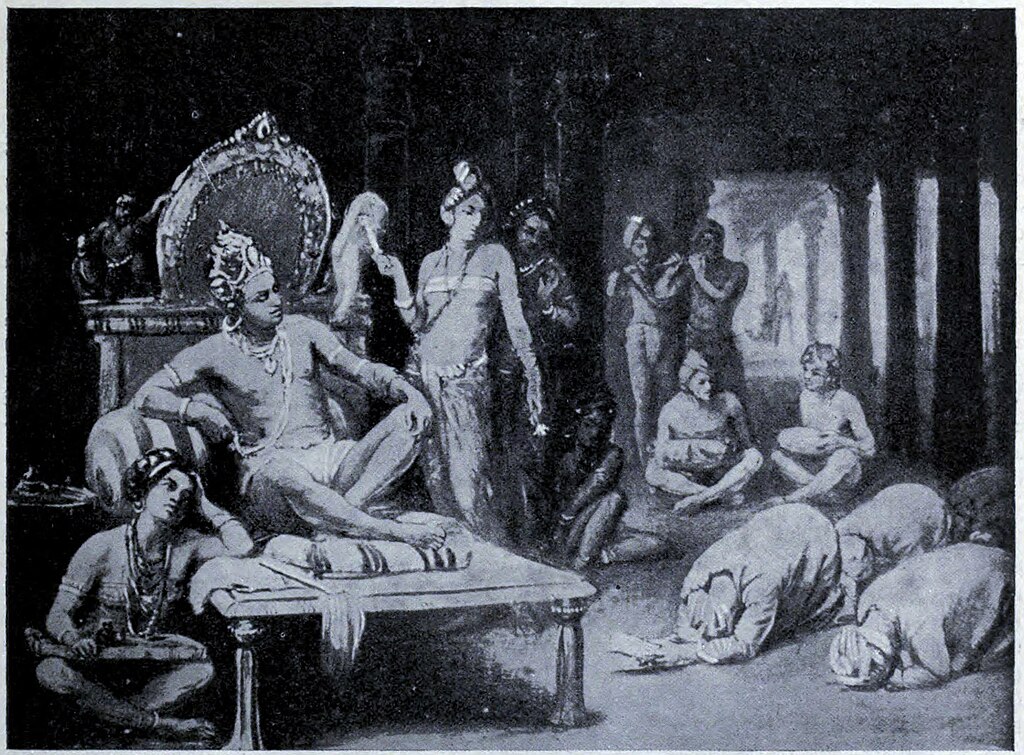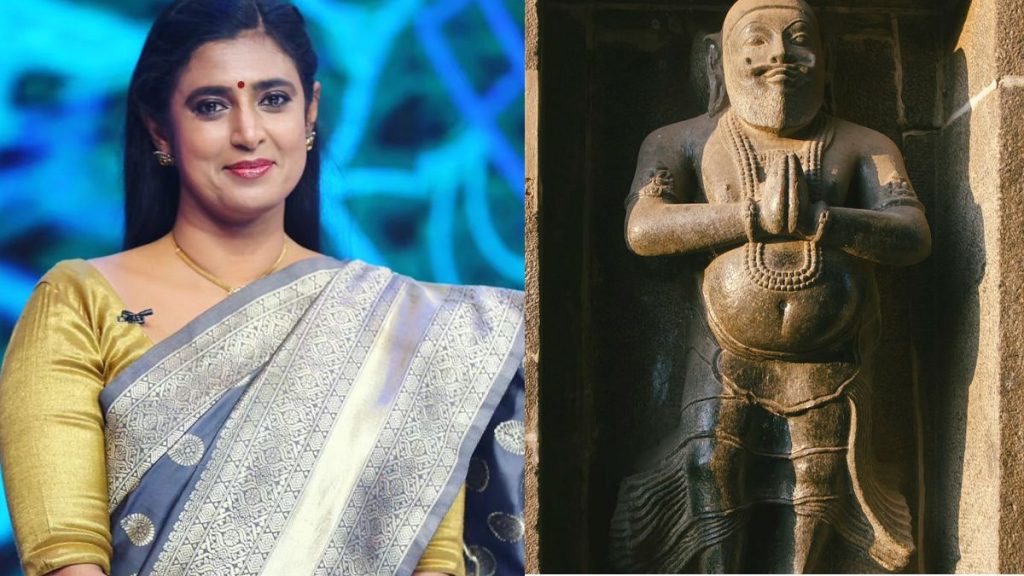Tamil actress Kasthuri Shankar, known for her roles in several blockbuster films like ‘Bharatheeyudu’, has recently made inappropriate comments targeting the Telugu-speaking people, equating them to slaves. Her comments, which purportedly elaborate on historical contexts, have sparked controversy in both Telugu states and have become a topic of discussion even in Tamil Nadu, where she is currently a member of the BJP. However, if Kasthuri were aware of history, she might have refrained from such remarks. Knowing the significant contributions of Telugu rulers, leaders, and individuals in Tamil lands would have offered a better perspective.
What Exactly Happened?
Tamil actress Kasthuri’s recent comments have caused severe uproar in the Telugu states. During an event organized in Gurumoorthy Nagar in Chennai, she joined the BJP and targeted the DMK and the Karunanidhi family. She remarked that Telugu people, who initially came to serve in the royal courts 300 years ago, are now claiming Tamil identity, questioning who are others to deny Tamil identity to the Brahmins who came here long ago. She suggested that Dravidian ideologists oppose Brahmins merely because they advise against coveting others’ wives, and thus, they oppose Sanathana Dharmam. She also claimed that speaking Telugu alone is enough to become ministers in Tamil Nadu, noting that five Telugu ministers are currently in the DMK government.
Impact on Tamil History
One of the prominent dynasties that ruled Tamil Nadu was the Cholas, among whom Kulottunga Chola-I was of Telugu descent. His father was Rajaraja Narendra, a ruler from the Vengi Chalukya dynasty who governed the region between Krishna and Godavari in present-day Andhra Pradesh. Kulottunga Chola’s mother, Ammangaidevi, was a princess in the Chola realm. After her father’s death, instability plagued the Chola kingdom, leading Kulottunga to safeguard his grandfather’s empire and continue ruling there. His descendants also successfully ruled Tamil Nadu. From 1061-1118, Kulottunga ruled as a Chalukya emperor, but his son Vikrama Chola became a Chola emperor, illustrating that the blood of Telugu Chalukyas was present in him. Historians often state that a Telugu person ruled the great Tamil kingdom of the Cholas, clearly marking the impact of Telugu culture on Tamil history.

The Telugu Name Behind ‘Chennai’
The name of Chennai, the capital of Tamil Nadu, comes from a Telugu person. In 1639, Damerla Chennappa Nayakudu, a prince under Venkatapati Nayak, a lord from the Andhra Padmanayaka dynasty, governed the area. The British, under the East India Company, settled there and later renamed the area as Madras. Over time, the area became known as Madras, but locals preferred to call it Chennai Pattinam or Chennapuri. Following local preference, after independence, the name was officially changed to Chennai in August 1996.
Telugu Influence on Madras
Previously, the combined state of Madras, now Tamil Nadu, was united with Andhra Pradesh. Due to Potti Sreeramulu’s hunger strike, Andhra Pradesh was formed as a separate state on October 1, 1953. Telugu people played vital roles in all sectors in the erstwhile Madras state, contributing to its development. From 1925-29, Srikalahasti zamindar Panaganti Ramarayanam served as the president of the Justice Party and Chief Minister of Madras, during which the current Thyagaraya Nagar was established. Between 1932-36, Bobbili Raja, Sri Ramakrishna Ranga Rao, served as the Chief Minister of the Madras Presidency. Rao Bahadur Kurma Venkata Reddy Naidu worked as the Governor of Madras. Even before the split, Prakasam Pantulu, a Telugu person, served as the Chief Minister of the united Madras state. The first three graduates in law from Madras University were Telugu. Thus, Telugu individuals significantly impacted politics, education, medicine, law, and commerce.
Hundreds of Telugu Manuscripts
Vijayanagara Emperor Sri Krishnadevaraya, known to all Telugu people, wrote ‘Amuktamalyada’ under the witness of his court’s Ashtadiggajas, which is still preserved in the Tanjavur library in Tamil Nadu. Along with it, 778 palm manuscripts covering mathematics, science, and mythology are stored there, demonstrating the extent of Telugu cultural influence in Tamil Nadu. This cultural patronage by ancient kings highlights Tamil Nadu as a symbol of cultural integration, which everyone should recognize.

